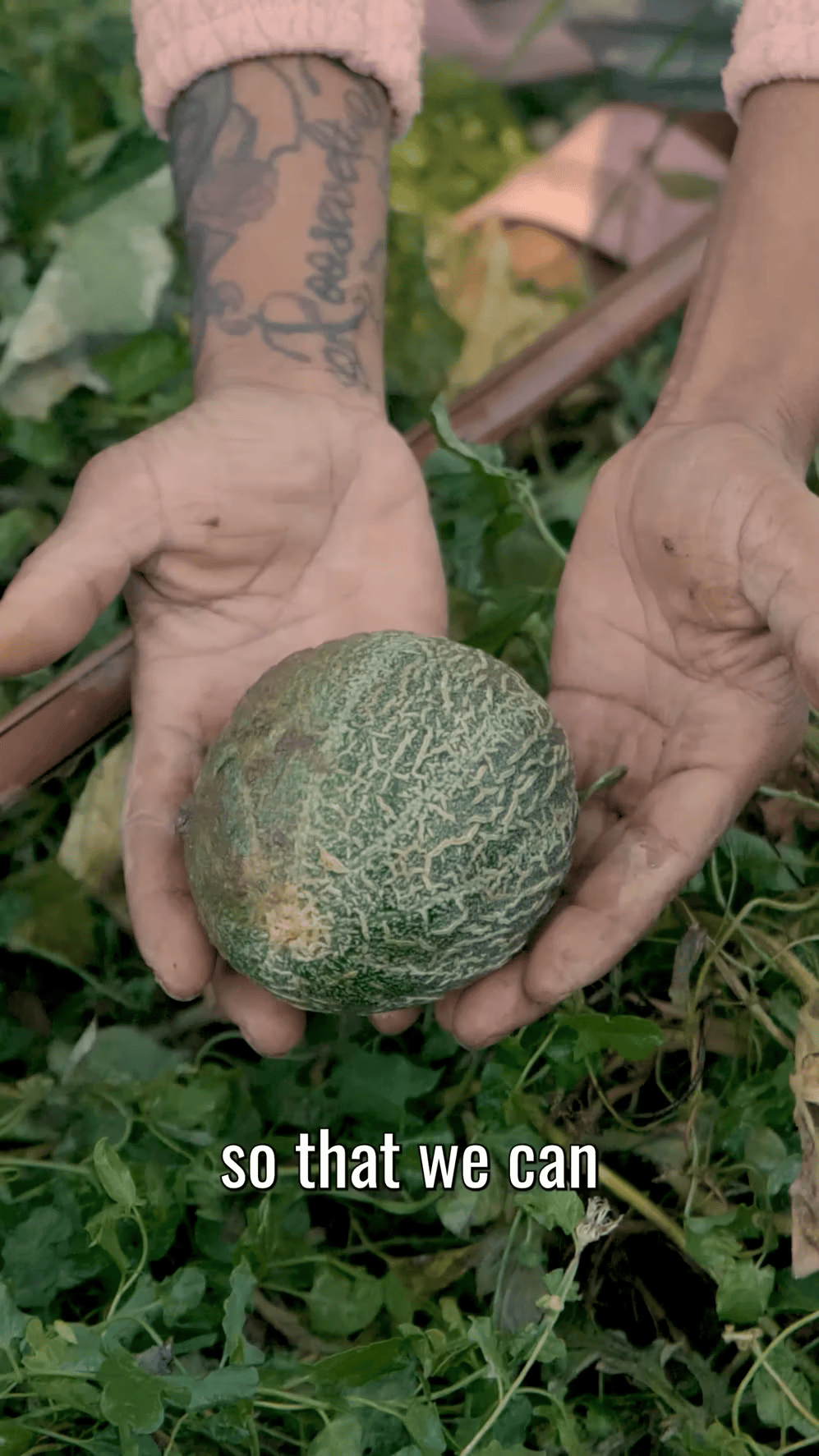who we are
At Feed Black Futures our mission is to nourish communities, advance climate resilience, and build black food economies as a means of addressing historical harms caused by incarceration and land dispossession. We serve Oakland, Sacramento, and the Central Valley.
Why are we committed to this work?
We are committed to transforming our food systems and building community power to reclaim and grow the land commons. Our work is rooted in a deep reckoning with the historic harms of land dispossession, carceral violence, and the forced disconnection from traditional Black and Indigenous foodways. These injustices have disrupted not only our ability to nourish ourselves but also our relationships to land, each other, and the ecosystems that sustain us.
We believe that healing our people and healing the land are synonymous—and that true liberation means moving beyond extractive economies into systems of care, reciprocity, and abundance. By facilitating regenerative economies rooted in interdependence rather than forced dependence on centralized power, we are creating pathways for BIPOC communities to own our power, cultivate food sovereignty, and adapt to the challenges of climate change.
Our work ensures that our most vulnerable communities have access to fresh, culturally relevant, and nutritious food while equipping them with the tools to collectively steward land, build cooperative leadership, and foster self-determination. We are not just feeding our people in the present—we are feeding a future where BIPOC communities thrive, land is liberated, and we collectively shape a world rooted in justice, healing, and liberation.
Breaking Cycles
Breaking Cycles supports those on the frontlines of land dispossession, carceral violence, and ecological disruption—systems that have historically kept Black communities from fully participating in the food sovereignty movement. This program provides emergency food, mutual aid, and essential resources to individuals and families impacted by these systems. By addressing immediate needs and removing barriers to access, we help break the cycles of poverty, displacement, and disconnection that prevent our people from reclaiming their rightful place in the movement for food sovereignty. Looking for resources, visit our Offerings Page.
Shifting Power
Once we’ve broken the cycles that hold our communities back, we focus on Shifting Power. This program centers political education and leadership development to help individuals deepen their understanding of food sovereignty, land stewardship, and justice. Through engagement with our Leadership Council and members, we provide training and advocacy tools that strengthen Black food ecosystems and amplify community-driven solutions. As we build collective power, we prepare individuals to contribute to transformative work in their communities and beyond.
Facilitating Regenerative Economies
The heart of our work lies in Facilitating Regenerative Economies (FRE), which centers ecosystem building and collective action. In partnership with other community organizations, we support projects and cooperative efforts that prioritize sustainability, land stewardship, and equitable resource distribution. This program facilitates connections between growers, land stewards, and community leaders to build local food systems and economies that do not rely on exploitative structures. By collaborating on projects, sharing knowledge, and redistributing power, we create alternatives to the current systems that harm our land and people.
OUr liberation model
Nourishing The Land, Reclaiming Our Future
Our work is about more than food—it’s about cultivating a regenerative future reckoning with the extractive economies that have fueled ecological destruction and dispossession. Industrial agriculture, land theft, and capitalist exploitation have ravaged ecosystems and severed Black communities from the land, forcing dependence on harmful systems designed to extract from us rather than sustain us. We refuse to accept this legacy of harm. Instead, we are reclaiming land stewardship, rebuilding Black food economies, and restoring our relationships to the earth as an act of resistance and liberation.
The answers to our future lie in the wisdom of our past. We support our community by engaging in regenerative Afro-Indigenous farming practices that revitalize soil, restore biodiversity, and sequester carbon—practices that sustained our ancestors long before colonialism and industrial agriculture disrupted them. By moving away from extractive, profit-driven systems and returning to reciprocal relationships with the land, we are healing both people and ecosystems, ensuring that future generations inherit a world rooted in abundance rather than depletion.
The regenerative economies we are building reject the centralized structures that have exploited our communities and the land for centuries. Instead, we cultivate interdependent networks of food growers, healers, and land stewards who share resources, knowledge, and power. Through food sovereignty and land stewardship, we are not just surviving the climate crisis—we are facilitating adaptation, ecological justice, and collective liberation. By looking to the past, we reclaim the future.
Our Partners
We are proud to be part of a vibrant ecosystem working toward our collective vision of food sovereignty and liberation with:
SoulFire Farm, HEAL Food Alliance, Minnow, Community Alliance with Family Farmers, Chisholm Legacy Project, Midwest Farmers of Color Collective, Sogorea Te’ Land Trust, Ujamma Farmer Collective, Agroecology Commons, Climate Justice Alliance, RESTORE Oakland, Freedom Community Clinic, APEN
…and many more!
Our COALITIONS & Alliances
Our work is sustained and furthered through our ecosystem connections. Feed Black Futures is a proud member of:






